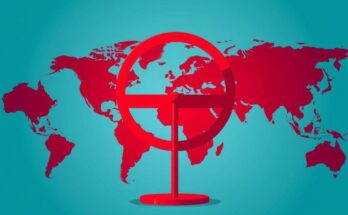Voters in Uruguay are participating in a tightly contested presidential run-off between opposition candidate Yamandu Orsi and conservative Alvaro Delgado. Polling suggests a race potentially decided by under 25,000 votes, underscoring the moderate political climate in the country. Both candidates aim to capture the undecided voters while focusing on continuity and moderate change amidst a backdrop of economic concerns.
In Uruguay, a nation characterized by its tranquil atmosphere and progressive policies, voters are participating in a closely contested second-round presidential election. The contenders are Yamandu Orsi, representing the opposition Broad Front, and conservative Alvaro Delgado, who is endorsed by the Colorado Party. Recent opinion polls indicate a tight race, potentially decided by a mere 25,000 votes, reflecting the relatively moderate political climate in Uruguay compared to its regional neighbors.
Election day activities commenced at 8 AM local time and are expected to conclude by 7:30 PM, with the initial results anticipated shortly after. Orsi garnered 43.9% of the votes in October, while Delgado secured 26.8%, buoyed by support from other conservative factions. Despite Orsi’s assurances of maintaining a moderate approach, Delgado optimistically campaigns for continuity, citing the existing government’s popularity.
Both candidates aim to appeal to the undecided electorate, which includes approximately 8% of those who favored smaller parties in the initial round. Interestingly, neither candidate has introduced new policy proposals in recent weeks, and there are concerns regarding the impact of a televised debate on public perception. As 2023 concludes, there is speculation on whether Uruguay will maintain the trend of incumbents losing ground amid economic pressures that have affected numerous countries worldwide, including the United States and the United Kingdom.
Political analysts suggest that the stable economic situation in Uruguay may play a crucial role in Delgado’s campaign, with indicators showing limited demand for substantial political change. A positive outlook remains as voters engage in this critical electoral process.
Uruguay is often recognized for its serene lifestyle and progressive social policies, including the legalization of marijuana. The country boasts a population of approximately 3.4 million and has experienced a series of elections in recent years that reflect considerable moderate political competition. The current presidential election is particularly notable due to the closely matched contenders and the shifting political landscape observed in the broader Latin American region. The outcome is pivotal as it may signal the electorate’s sentiments regarding continuous governance amid increasing global economic challenges.
The presidential run-off in Uruguay presents a compelling narrative of political moderation amid a globally fluctuating political landscape. With candidates Yamandu Orsi and Alvaro Delgado vying for the presidency, the election signifies more than just a leadership transition; it illustrates the electorate’s potential desire for stability against a backdrop of economic anxiety. The result will not only determine the country’s immediate political direction but also set a precedent for future elections in a region frequently marked by polarized politics.
Original Source: www.begadistrictnews.com.au




